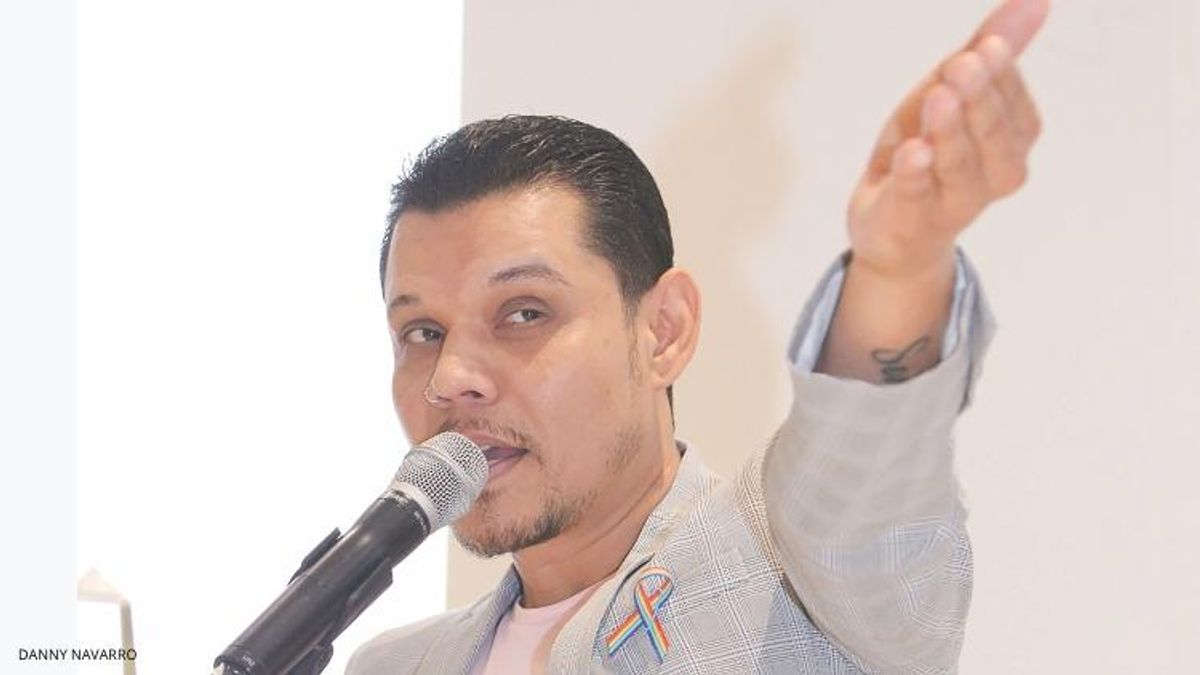Stigma
Activist Victor Claros Helps Latinos Understand U=U

Victor Claros is helping other Latinx immigrants understand the U=U message.
January 29 2020 5:00 AM EST
By continuing to use our site, you agree to our Privacy Policy and Terms of Use.

Victor Claros is helping other Latinx immigrants understand the U=U message.
Victor Claros knows the ugly realities of war. The El Salvador-born immigrant fled his country after being captured and nearly killed by guerrillas when he was 15. But the young man’s spirit never died.
Despite having grown up in a religious and homophobic family, Claros found the strength to come out twice: first as gay to his then-wife, and later telling the world he’s living with HIV. What happened next prompted him to take the first step towards becoming a staunch activist.
“I felt guilty, I was really afraid and ashamed,” remembers Claros, who was working as an HIV educator at a nonprofit at the time of his diagnosis. “I think, sadly, it took me being diagnosed to realize how much stigma and discrimination people living with HIV face on a daily basis. What made it even harder is the fact that way too often the stigma came from individuals, providers, and workers who were helping people with HIV.”
One of Claros’s a-ha moments came when he overheard providers making negative comments about their own HIV-positive clients, an experience that made him realize he needed to fight harder for the people they were serving. So, he joined ranks with Bruce Richman and the Prevention Access Campaign to further promote undetectable equals untransmittable (U=U), a consensus that states when you are HIV-positive, undetectable, and on meds, it is impossible to transmit the virus.
Claros says, “The only way I was going to help others was by becoming vocal and openly start talking about these people I was testing on a daily basis. That’s kind of the thing that pushed me to come out [positive].”
Being part of the U=U movement helped Claros zone in on the specific needs Latinx people face, which prompted him to cofound Impacto LGBT (ImpactoLGBT.org), an independent group developed and led by queer Latinx individuals in the Washington, D.C. metropolitan area (specifically in northern Virginia).
“One of the things we do is we accompany the client—sometimes we have to make two or three interventions—and we take them by the hand to their first appointment,” he says of the organization. “Instead of having an interpreter over the phone, we do it for them.”
Impacto LGBT, which is in the process of getting its 501(c)(3) status, also advocates for more inclusive language across the medical sphere, highlighting the negative impacts of naïve and stigmatizing language and how important it is for people to understand how it is detrimental to immigrants and monolingual Spanish speakers. While it’s slowly bringing vulnerable Latinx communities together, Claros says the impacts are wide-reaching.
“We’re sending people who they can identify with because they look like them, speak like them,” he says. “They come from Central America like they do. People living with HIV who’ve experienced other issues like violence. That makes a big impact.”